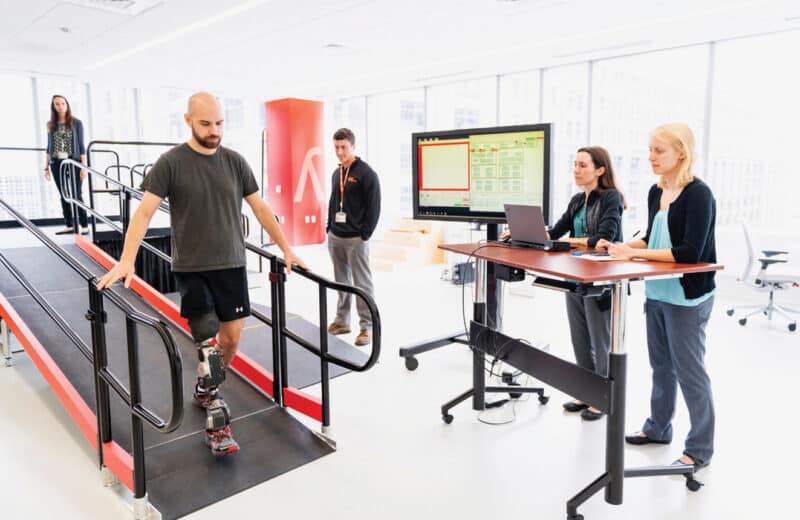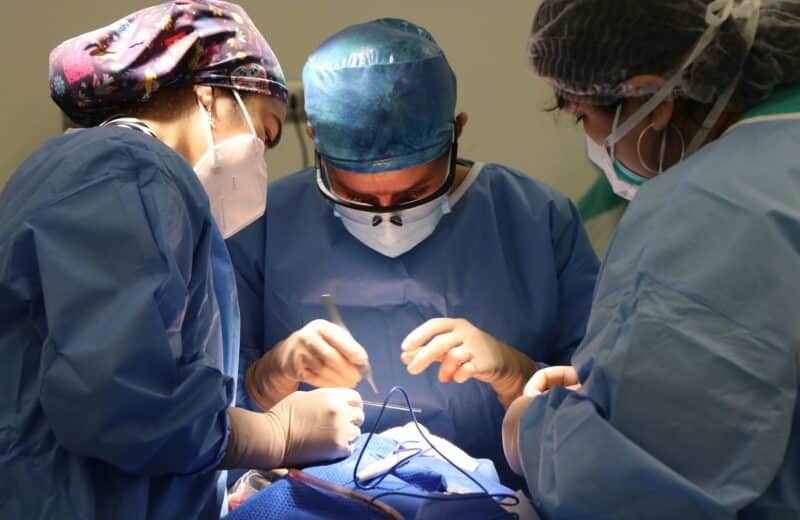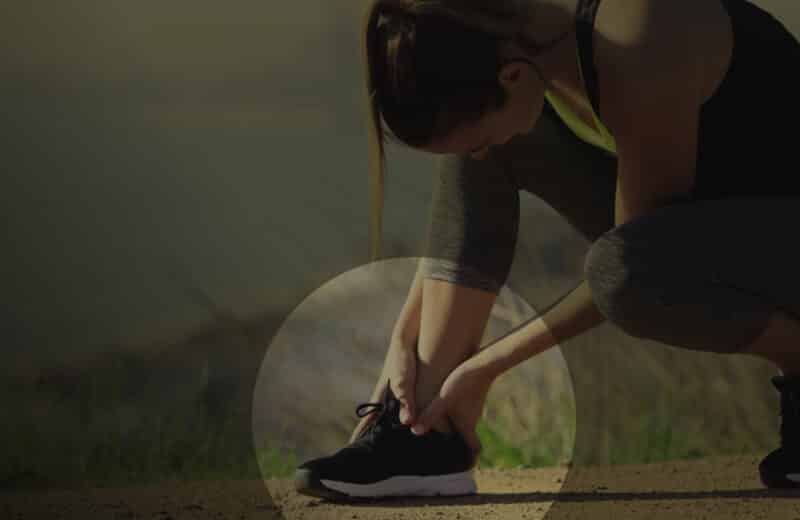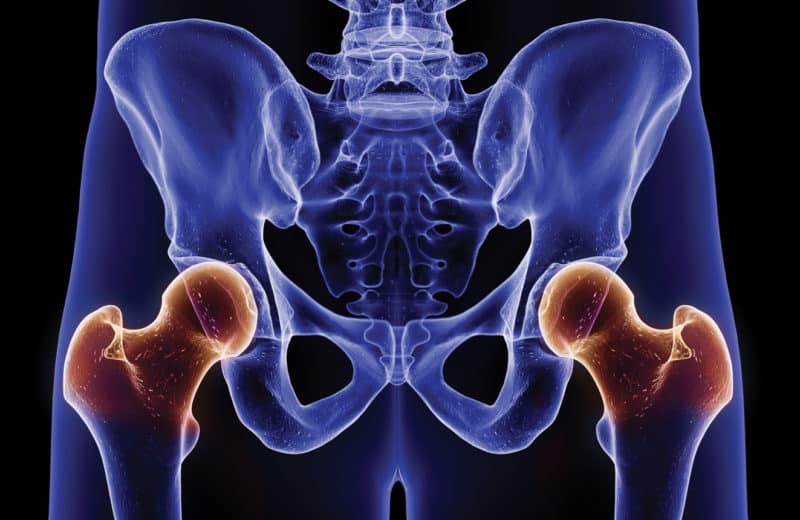Backlog of orthopedic surgeries due to Covid-19 may have long-lasting effects
When the Covid-19 pandemic began to pick up speed in the U.S. in March 2020, Chicago seemed to turn upside down. In a matter of mere days, hospitals greatly decreased their operating capacity to respond to the corona-virus threat. But the decrease in surgeries put people with non-life-threatening healthcare needs in a state of limbo.
Nancy Stevens, 68, from Rochester, Minnesota, is one of these patients. In early February, while on vacation, Stevens fell, which caused a tendon tear and avulsion fracture of her hip. Upon returning from vacation, she traveled to Chicago to see her doctor, Benjamin Domb, MD, founder, medical director, and surgeon at The American Hip Institute & Orthopedic Specialists in Des Plaines.
Her surgery was scheduled for mid-April, but as the pandemic escalated, the operation had to be postponed due to safety concerns at the hospital. By the time Domb operated on Stevens in late May, more than three months had passed.
Stevens isn’t alone. She was one of about 80% of Domb’s patients whose surgeries were postponed. And thousands more individuals across the country are living with severe pain as they await orthopedic surgeries.
Domino effect
Typically, orthopedic surgeries are considered nonemergency, elective surgeries because physicians can schedule them in advance. As a result, most were postponed during the initial phases of the pandemic.
But the reality for Domb’s patients, and people across the country, is much more nuanced than that. Though they may be elective, many orthopedic surgeries address chronic pain, preserve joint and skeletal function, and increase quality of life.
“If not fixed immediately, certain orthopedic problems like broken bones or tendon tears can lead to long-term dysfunction,” says Justin Gent, MD, an orthopedic surgeon at Illinois Bone & Joint Institute who specializes in sports medicine.
Avulsion fractures and tendon tears are the type of orthopedic injuries that should be addressed right away, Gent says.
“Time lost is important,” Gent says. Some injuries are so serious that they can cause people further disability when the tissue contracts and becomes more difficult to operate on. Waiting can also put individuals at a heightened risk of long-term damage, such as arthritis.
Overcompensating for an injury can cause other injuries, such as a knee injury that leads to limping and subsequently results in back pain.
In addition, when surgery is delayed and individuals rely on opioids for long-term pain management, they are at a greater risk for drug dependence.
Putting off surgery doesn’t only affect the body. The loss of ability to do daily activities can lead to depression, especially if a person is also facing economic hardship because they can’t perform their job due to their injuries.
A secondary crisis
Although elective surgeries have resumed, residual effects remain. While some people were eager to resume treatment, others remain wary of contracting the virus in a doctor’s office, putting off necessary appoint-ments and procedures. Domb predicts the backlog created by waiting to treat patients will continue through the end of 2020.
“While we remained focused on Covid-19, a secondary healthcare crisis is brewing and threatening millions in our nation,” Domb says. Medical issues will mount due to ailments that have been ignored or undertreated due to limited resources during the pandemic, he says.
Logistical challenges linger for healthcare centers, including sanitation and constantly changing safety measures, such as restrictions on the number of patients allowed in at a time.
As the pandemic continues and shifts, Gent says he is using telehealth appointments to check on patients who are uncomfortable going into his office. He is also using strategies like braces, injections, and medication to mitigate his patients’ pain while they wait for surgery.
A new normal?
For some individuals, waiting maybe okay, but others risk developing long-term problems. Thankfully, Stevens is doing well post-surgery, says her daughter Melissa Stevens Larson, a physical therapist, but they believe the outcome would have been better if the surgery had happened sooner.
A secondary healthcare crisis is brewing and threatening millions in our nation.”
Due to the later operation, Stevenshad a longer delay in mobility after surgery in order to heal properly.
She had to wait six weeks to start rehabilitation therapy, whereas rehab would typically start one week after the operation. Such delays can cause other long-term effects, such as a lack of full mobility and function.
“She was frustrated with the fact that her surgery was put off because of Covid, just knowing that her recovery time would have been a bit shorter,” Larson says.
While all facets of society are learning to navigate a new normal in the wake of the pandemic, healthcare providers will continue to adapt to their patients’ needs.
“We’re in this profession because we care about people,” Gent says. “I would encourage patients to reach out to their physicians with any concerns they have, even if they seem small.”
Domb agrees. “When I became a doctor, I took an oath to help people however I could, even if it puts me at risk,” he says. “I see treating patients through the virus as an extension of this.”














